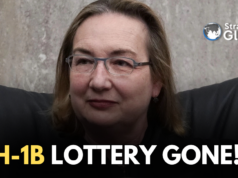Germany’s Social Democrats are set to announce on Wednesday whether their members have approved a coalition agreement with the CDU/CSU conservatives, potentially removing the final obstacle to forming a new government in Europe’s largest economy.
The conservatives-SPD coalition was the only path to a majority government after both major parties suffered steep losses in the February federal election. They have both ruled out governing with the far-right Alternative for Germany which scored a historic second place.
Over the last two weeks, SPD members have voted on the coalition treaty drawn up by leaders of both parties. Their approval, which is widely expected, would enable conservative leader Friedrich Merz to become chancellor on May 6.
If SPD members vote down a coalition treaty drawn up by the leaders of both parties, it would throw German politics deeper into disarray just five months after the collapse of the last majority government.
Reviving The Economy
Reviving Europe’s largest economy, now in its third year of contraction, is a top priority for Germany’s next government, amid fears that a trade war sparked by U.S. President Donald Trump’s tariff announcements could further hurt its export-driven economy.
Despite the SPD’s historic low of just 16.4% of the vote, political experts say it secured key gains in the deal, leveraging the conservatives’ lack of alternative paths to the chancellery for the next four years.
The next coalition aims for example to invest heavily in Germany’s infrastructure, raise the minimum wage to 15 euros ($17.01) per hour, keep pensions level at 48% of the current average wage and extend a cap on rents, according to the contract.
The SPD also secured the coveted finance ministry, along with six other cabinet posts.
Leaders Demand Rejection Of Deal
The SPD’s concessions on tighter migration rules and cuts to unemployment benefits as well as its failure to secure tax hikes for the wealthy have, however, drawn sharp criticism from the party’s influential Jusos youth wing, whose leaders have urged members to reject the deal.
A rejection by SPD members would leave few viable options: the party could seek to renegotiate the deal, although this is deemed unlikely as many conservatives feel their party already made too many concessions.
Parties could consider forming a minority government although that would foster instability. Germany could hold new elections with the possibility the AfD comes in first place after surging in polls in recent weeks.
Or the conservatives could reconsider their veto on forming a coalition with the AfD, also widely deemed unlikely.
($1 = 0.8819 euros)
(With inputs from Reuters)





